Nike’s distributor in Brazil, which has rights to sell the official national team jerseys for the FIFA World Cup, is no longer allowing customers to order personalized jerseys with “Jesus,” “Christ,” or other Christian terms following complaints from African paganists this week.
The FIFA World Cup begins on Sunday and is one of the planet’s most prestigious sporting events. It is particularly popular in Brazil, the winningest country in the history of the tournament with five championships.
Fisia, the company serving as Nike’s distributor in the country, reportedly added “Jesus” – a common male name in Latin America – and “Christ” to its list of prohibited personalization terms on Wednesday after the country’s Federal Public Ministry (MPF), its attorney general’s office, intervened out of concern for religious discrimination. Adherents to the Nigerian Lucumí Yoruba faith – known in the Spanish-speaking world as santería but commonly referred to in Brazil as Candomblé – complained to the government that the Nike website did not allow them to personalize World Cup jerseys with the names of their gods.
According to the BBC, prior to the online outrage from the African religious community in the country, names of deities (orixás) such as Xangô or Exu were not available for personalization, but “Jesus” and “Cristo” were. As one user on Twitter noted, on Tuesday, personalizing a shirt with the term “Amen, Jesus” was possible, but doing so with the Yoruba exaltation “Laroyê Exu” was not.
The MPF then ordered an investigation into the matter that resulted in Nike and Fisia agreeing to add Christian terms to the list of prohibited terms for personalized jerseys.
Breitbart News attempted to order personalized Brazil national team jerseys on the Nike Brasil site on Friday. Attempting to use the names of African gods and “Jesus” and “Cristo” indeed resulted in a message reading, “personalization unavailable.”
Other religious terms – multiple spellings of Muhammad/Mohammed, “Allah,” and the Hindu god “Ganesh” – were still available at press time, however, potentially leaving Nike still open to accusations of religious discrimination. Mohammed, like Jesus, is a common male name in many parts of the world.
The name “Cristiano,” a common Portuguese name that means “Christian,” can still be ordered on a personalized male jersey.
Brazilian national team jerseys for women are not available at press time, presumably sold out as the FIFA World Cup begins on Sunday.
Religious terms are part of a larger list of prohibited personalizations that include profanity, racist terms, and the names of politicians. At press time, attempting to order jerseys with the names of either presidential candidate in the October elections, “Lula” and “Bolsonaro,” triggers an error message.
The prohibition of Christian terms from the jerseys prompted outrage from conservative Christian leaders, most prominently the president’s son, lawmaker Eduardo Bolsonaro, who accused the sporting company of “Christophobia.”
Brazil is an overwhelmingly Christian country. As of 2010, nearly 90 percent of the country identified as some form of Christian, the plurality of which are Roman Catholic. Only 2.2 percent of Brazilians identified as “spiritist,” presumably including some Candomblé, while others may identify as “other,” which includes 1.4 percent of the population.
The CIA World Factbook does not include Islam or Hinduism as separate categories, so, presumably, the Muslim and Hindu population of Brazil is included in 1.4 percent identified as “other,” as well.
Nike had already faced some minor controversy over the jerseys as they became a sort of unofficial uniform for supporters of incumbent conservative President Jair Bolsonaro at his rallies and, later, protests against his defeat in the election. Bolsonaro supporters embraced the yellow and green colors of the flag in contrast to the blood-red official color of the socialist Workers’ Party (PT), which President-elect Luiz Inácio Lula da Silva founded and leads. Adding to the connection between the sports uniform and conservative partisans was the official endorsement Bolsonaro received from Neymar, arguably Brazil’s most popular soccer star at the moment.
“We do not control how the consumer will use the product, whether for sports or for everyday use,” Fisia’s marketing director Gustavo Viana told the news outlet UOL last week. “Launching the Brazilian national team uniform is always special: we are talking about a national symbol, which represents a lot and which naturally transcends the world of soccer.”
Viana claimed that Nike had already sold ten times more jerseys in the first two days they were available this year than the number sold during the 2018 FIFA World Cup. The men’s jerseys cost 349.99 Brazilian reais, about $65, and about $68 with personalization, an extra 15 reais.
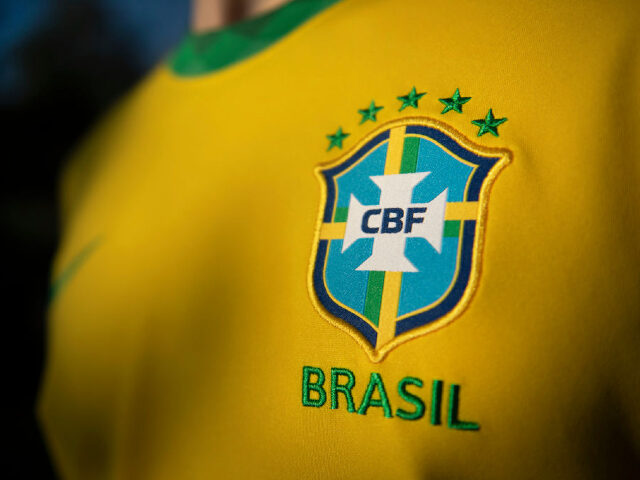
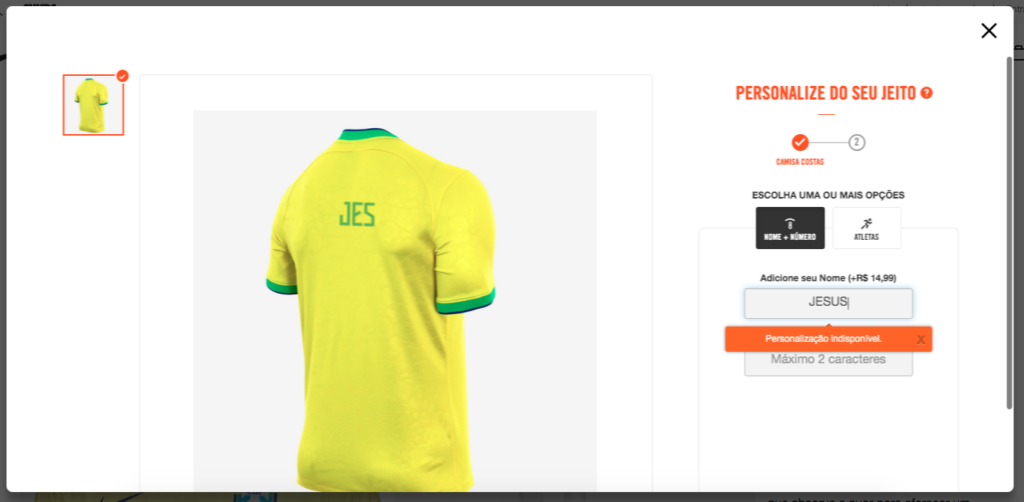
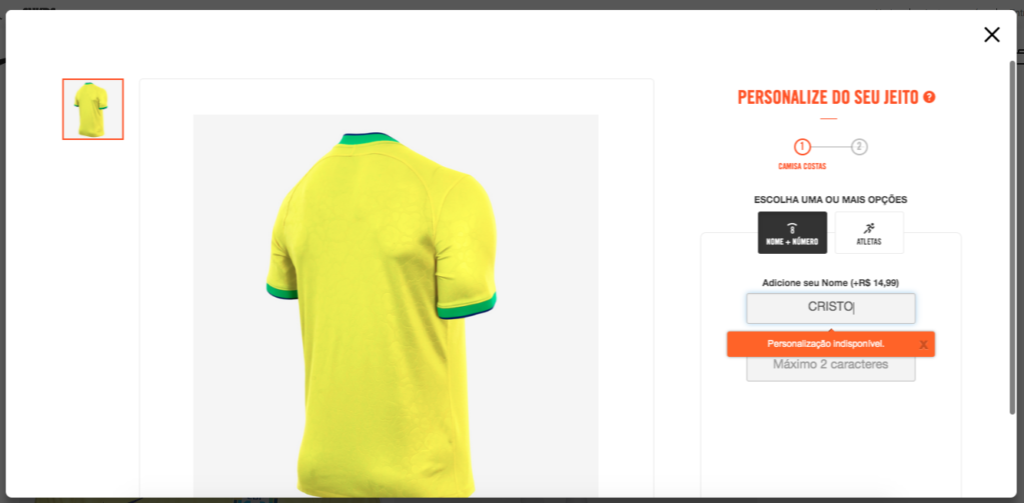
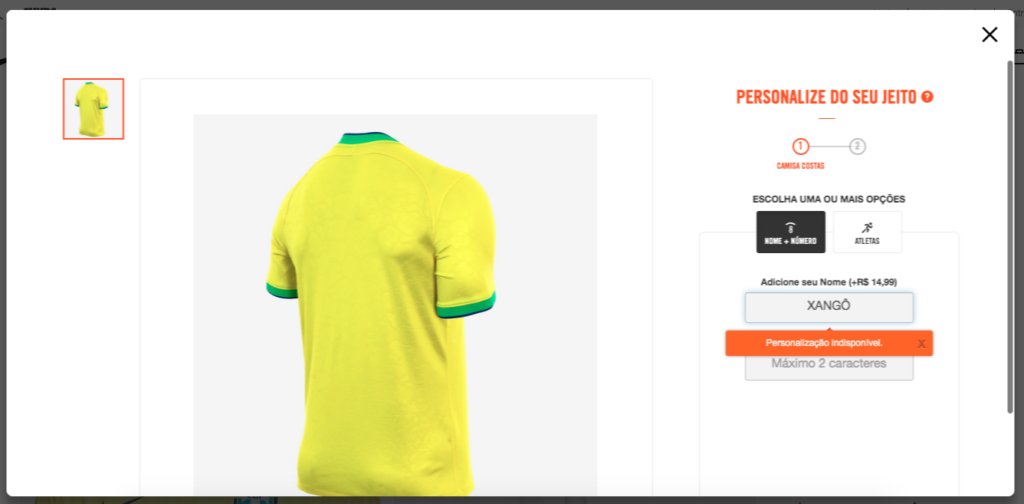
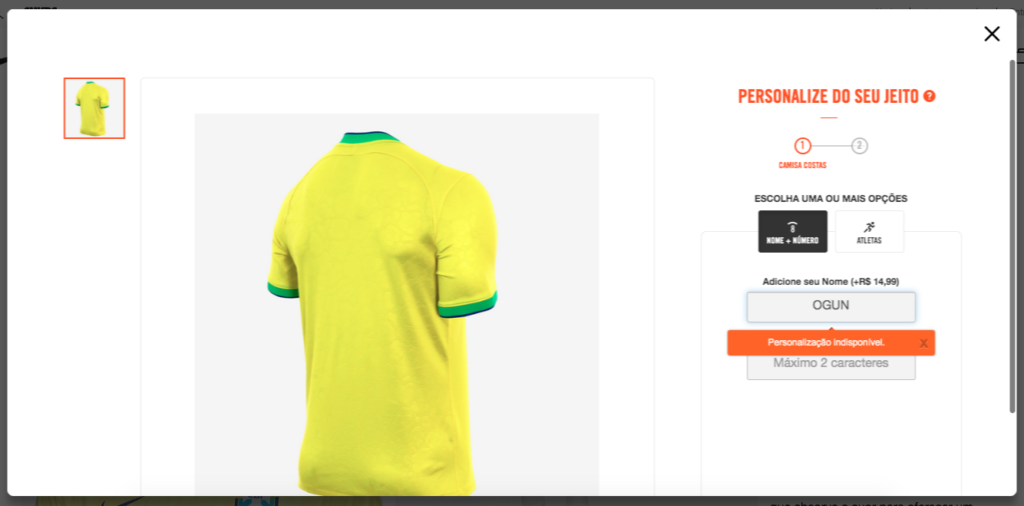
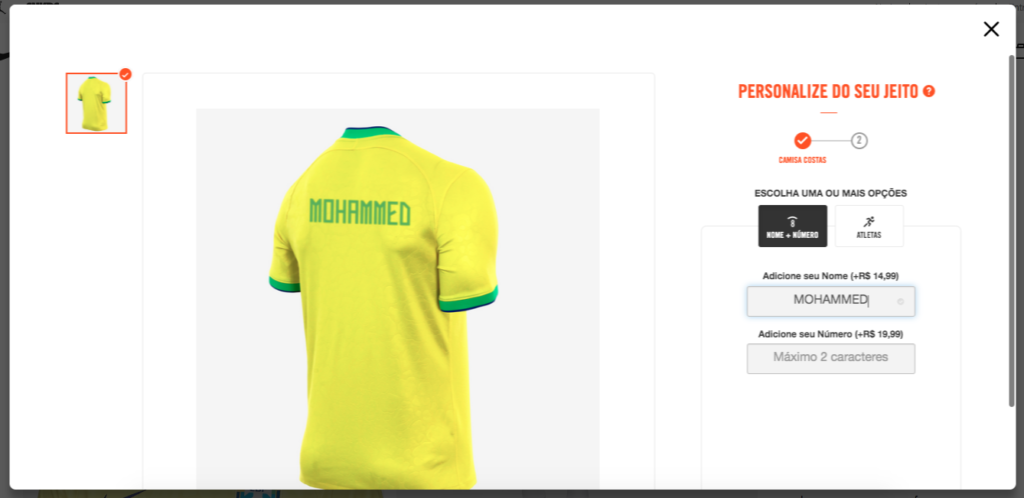
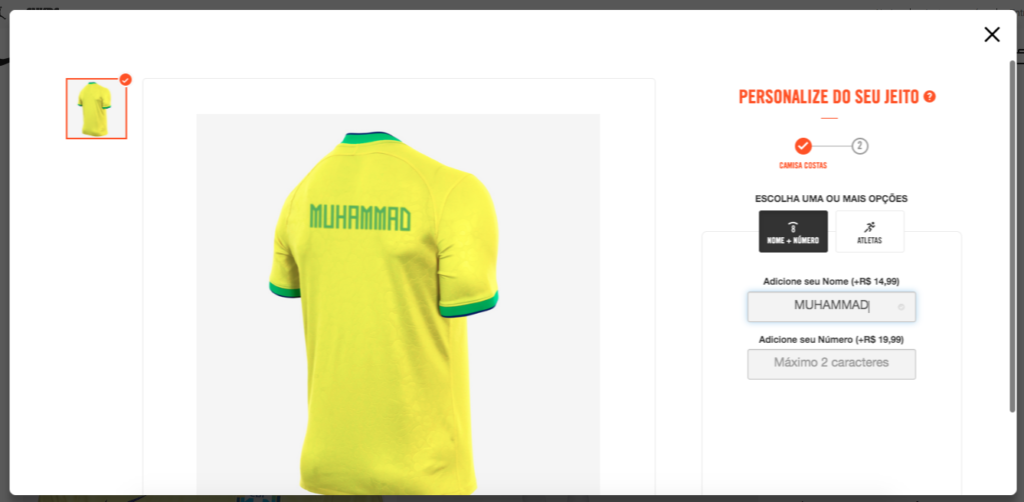
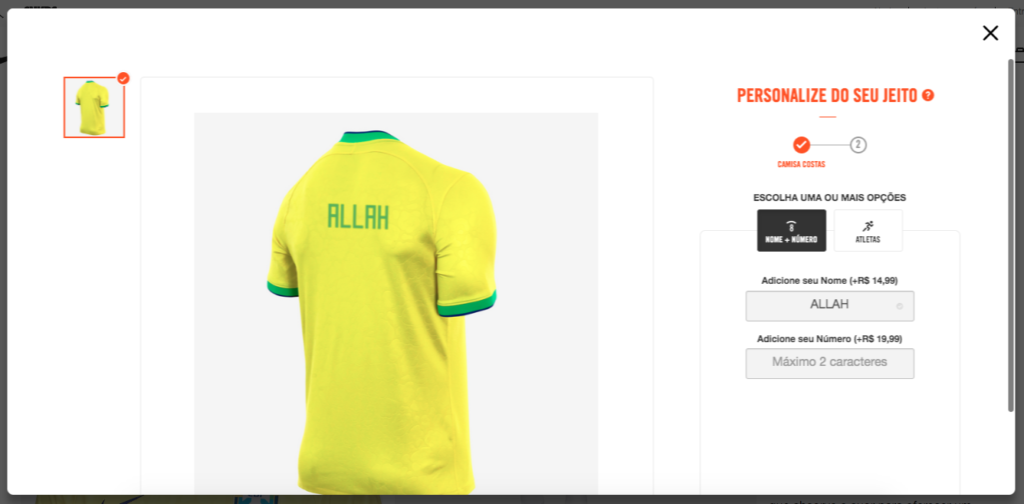
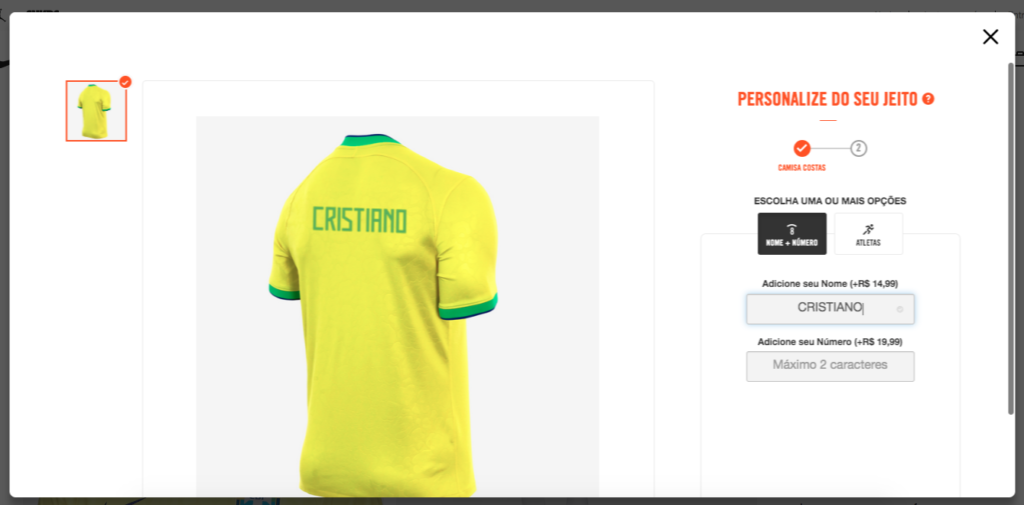
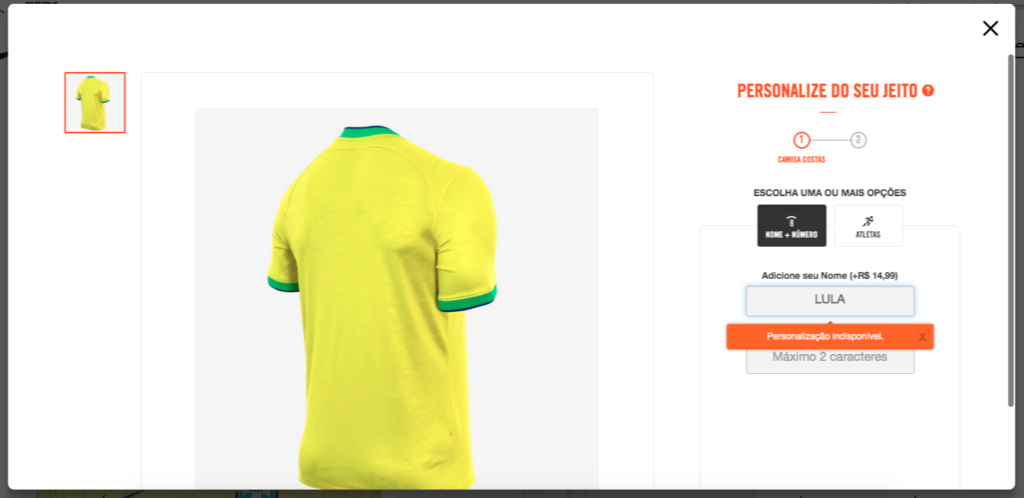
COMMENTS
Please let us know if you're having issues with commenting.